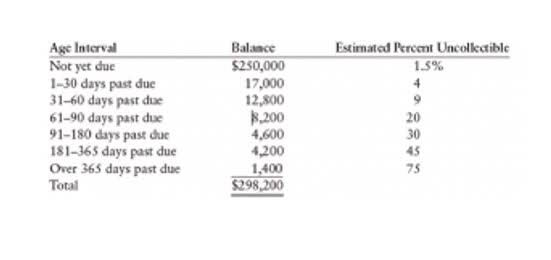No products in the cart.
Successful-Efforts vs Full-Cost Accounting Leave a comment

Asset retirement responsibilities (ARR) represent significant long-term liabilities for decommissioning wells, dismantling infrastructure, and restoring land post-production. Standards like ASC 410 under GAAP require recognizing a liability and corresponding asset at the present value of estimated future costs. When it Accounting for Technology Companies comes to oil and gas companies, everything revolves around how they treat capitalized costs.
Contact us for more information on our oil and gas accounting services

By tailoring a cloud solution that fits your business needs, business leaders will have the data that can help support critical business decisions and fuel growth. We’re here to meet all your accounting needs, providing clarity and insights to help you make decisions that propel your business forward. Professionals can enhance skills by learning industry-specific accounting methods, mastering financial reporting techniques, and gaining hands-on experience with specialized accounting tools through structured training programs. Under a PSC, the state grants an oil company the right to explore and produce hydrocarbons in a specific area, with the understanding that the company will recover its costs and share the remaining production with the state. Explore essential principles and practices in oil and gas accounting, from revenue recognition to asset impairment and taxation. Oil and gas companies need to adhere to specific regulatory and tax reporting requirements, and their financial reporting has to comply with industry standards and guidelines.

Oil & Gas Modeling: Projecting Revenue and Expenses on the Financial Statements

Financial reporting standards play a critical role in the oil and gas industry, ensuring that financial statements are transparent, consistent, and comparable across different entities. In oil and gas accounting, specialized financial reporting standards address the unique challenges of asset valuation, revenue recognition, retained earnings and depletion. The oil and gas industry operates in a complex financial environment that demands precise accounting practices.
Comprehensive Service for Better Financial Stability
- Graduates find work as production, operations, revenue or joint venture accountants in the petroleum industry.
- Companies should develop clear capitalization policies in line with IFRS 6 or the US GAAP’s guidance on the capitalization of oil and gas exploration and development costs.
- Tax implications vary based on transaction structure, such as asset purchases, stock acquisitions, or joint ventures.
- The next chapter will explore best practices that oil and gas companies can implement to ensure effective financial management and reporting in this complex industry.
- This requires meticulous record-keeping and coordination among all involved entities to ensure compliance with accounting standards.
- They will have to adjust to changes that may happen in the field or within agency rules and regulations.
- We are a forum for the active exchange of ideas which result in innovative business and accounting solutions.
This estimation process involves significant judgment and can impact the timing and amount of revenue recognized. Advanced software tools like SAP S/4HANA and Oracle’s Oil and Gas Accounting solutions are often employed to manage these complexities, providing real-time data and analytics to support accurate revenue recognition. Explore essential oil and gas accounting practices, from cost types to revenue recognition and financial reporting standards. In today’s business environment, many oil and gas companies need help navigating the industry’s complex financial landscape, which includes fluctuating markets and stringent regulatory requirements. While tracking your company’s finances and maintaining basic bookkeeping is essential, it has limited use as a tool to give companies a competitive advantage. Instead, business leaders need data that can help support critical business decisions and fuel growth.
It ensures that financial statements are reliable and meet the stringent requirements of industry regulations. As the sector evolves, continuous improvement in oil and gas accounting accounting practices will be essential to maintain transparency and support sustainable growth. In the oil and gas industry, asset valuation is crucial due to the significant investments required for exploration, extraction, and production. Companies must accurately assess the value of their assets to ensure proper financial reporting and compliance with industry regulations. This involves not only the initial acquisition costs but also the ongoing evaluation of asset performance and potential impairments. One of the primary challenges in adhering to these standards is the frequent updates and changes that occur.